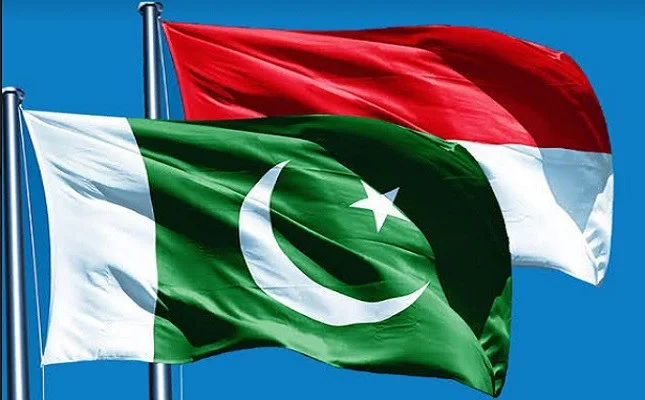- Web
- Feb 05, 2026
Pakistan, Indonesia set to sign multiple MoUs to strengthen economic ties
-

- Web Desk Karachi
- Mar 06, 2025

KARACHI: Pakistan and Indonesia are expected to sign over 10 Memoranda of Understanding (MoUs) soon that aim to enhance cooperation in various sectors and will be accompanied by discussions on advancing a free trade agreement (FTA) to bolster economic ties between the two nations.
According to The Express Tribune, Pakistan is eyeing significant growth opportunities in high-potential sectors such as processed food, pharmaceuticals, IT services, and halal meat. Conversely, Indonesia, with its robust industrial landscape, excels in areas like consumer electronics, auto parts, and processed palm-based goods.
In 2023, the trade dynamics between the two countries showcased a notable disparity, with Pakistan exporting approximately $328.16 million worth of goods to Indonesia, while Indonesia’s exports to Pakistan amounted to around $3.03 billion.
Indonesia is a dominant player in the nickel market, responsible for nearly half of the world’s refined nickel and two-thirds of the mined nickel. This positioning solidifies its ambitions to become a key player in the global electric vehicle (EV) supply chain, especially as it seeks to expand its foothold in new markets across Asia and Central Asia, particularly for lithium batteries and EVs.
Apple’s $1 billion investment falls short as Indonesia maintains iPhone ban
Given Indonesia’s vast nickel reserves, the potential for collaboration on lithium battery production represents a significant value addition for both nations.
As Indonesia’s EV economy continues to grow, the prospects for partnership become even more promising. “Most Indonesian EV manufacturers are private enterprises, which opens up opportunities for mutually beneficial joint ventures in the future, according to an economist.
The impending visit of Indonesian President Prabowo Subianto, originally scheduled for January 26 to 28, has been postponed but will be rescheduled soon. It is anticipated that during this visit, discussions will cover a wide range of collaborative areas, including education, healthcare, information technology, tourism, energy, food production, and military cooperation.
As one of Pakistan’s key trading partners, Indonesia is recognised as the largest economy in Southeast Asia, characterised by a diverse population of over 300 ethnic groups. Since recovering from the Asian financial crisis of the late 1990s, Indonesia has maintained impressive and consistent economic growth.
Indonesia boasts a stable, sustainable, and diversified macro-economy, which can support Pakistani expansion in various sectors, including textiles, Islamic fashion products, Islamic tourism and banking, start-ups, metal and mining, education, biodiesel, renewable energy, small and medium-sized enterprises (SMEs), digitalisation, e-commerce, engineering, biotechnology, and palm oil production.
Moreover, the utilisation of imported palm oil waste to create finished products could significantly benefit local agriculture, chicken feed, and organic fertilisers, ultimately contributing to the economy of local communities.
Given that edible oil constitutes Pakistan’s second-largest import bill after petroleum products, a collaborative initiative to cultivate palm oil trees domestically could fulfil local demand and drastically reduce dependency on international suppliers. Hence, enhancing indigenous production of palm oil emerges as a viable and sustainable solution.




